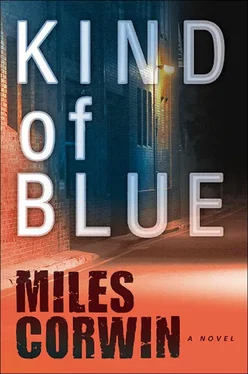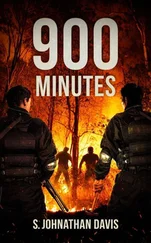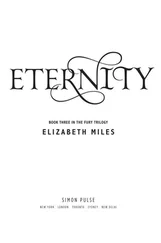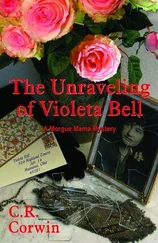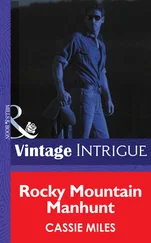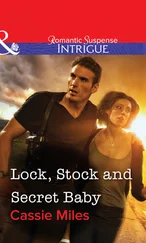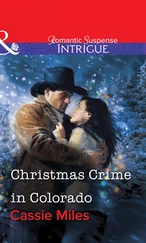Miles Corwin - Kind of blue
Здесь есть возможность читать онлайн «Miles Corwin - Kind of blue» весь текст электронной книги совершенно бесплатно (целиком полную версию без сокращений). В некоторых случаях можно слушать аудио, скачать через торрент в формате fb2 и присутствует краткое содержание. Жанр: Полицейский детектив, на английском языке. Описание произведения, (предисловие) а так же отзывы посетителей доступны на портале библиотеки ЛибКат.
- Название:Kind of blue
- Автор:
- Жанр:
- Год:неизвестен
- ISBN:нет данных
- Рейтинг книги:5 / 5. Голосов: 1
-
Избранное:Добавить в избранное
- Отзывы:
-
Ваша оценка:
- 100
- 1
- 2
- 3
- 4
- 5
Kind of blue: краткое содержание, описание и аннотация
Предлагаем к чтению аннотацию, описание, краткое содержание или предисловие (зависит от того, что написал сам автор книги «Kind of blue»). Если вы не нашли необходимую информацию о книге — напишите в комментариях, мы постараемся отыскать её.
Kind of blue — читать онлайн бесплатно полную книгу (весь текст) целиком
Ниже представлен текст книги, разбитый по страницам. Система сохранения места последней прочитанной страницы, позволяет с удобством читать онлайн бесплатно книгу «Kind of blue», без необходимости каждый раз заново искать на чём Вы остановились. Поставьте закладку, и сможете в любой момент перейти на страницу, на которой закончили чтение.
Интервал:
Закладка:
“Damn,” I grumbled. Duffy should have contacted me earlier. I was irritated that I had caught the case twenty-four hours after the murder, that the Harbor Division detectives had first crack at the fresh blood crime scene and the neighbors. I hoped Relovich’s relatives would provide me with some leads.
If I could bag and tag this one quickly, maybe I would have time to work on the Patton homicide before I caught my next case. Fuck Duffy and his warnings. I would do it on the down low. During the past eleven months, I spent countless hours at home pouring over a Xerox copy of the murder book on my lap, searching for some trace, some hint of a lead that would spark a revelation. One afternoon, I decided to hit the streets and see what I could unearth. I started with Patton’s daughter. But before I could ask a question, she’d screamed at me, blamed me for getting her mother killed, and threw me out of the house.
Apparently, she’d reported me to Internal Affairs, because the next day an I.A. lieutenant called me at home and warned me to stay away from the Patton case. I told him that because I was no longer a cop, I could look into any case I wanted-as a private citizen.
“If I get another call about you nosing around, I’ll write a search warrant for your place,” he told me. “And if I find you’ve stashed any pages from the murder book-or anything else connected to the investigation-I’ll write you up myself for theft of city property.”
That shut me up and kept me away from the investigation for a while. But the past few weeks, I had been thinking about ways to interview people connected to the case without I.A. finding out. Now that I was back on the job, I wouldn’t have to worry about that any more. I had the entree I had been searching for.
I downed the rest of the beer in a swallow, crossed the room to the sofa, and pressed replay. I stretched out and listened to the dazzling opening bars of “So What.” Closing my eyes, I thought about the blood splatter pattern, the broken window in the back of the house, the dried blood on the floor, the dealer on the street corner. And I thought about Relovich. He was not some anonymous, faceless victim, one of several dozen killed every month in the city. He had been a cop, a brave cop from what I had heard. I felt a kinship with him, a responsibility to a fellow officer.
And I felt a kinship with his daughter. I knew what was ahead of her, the emotional scars she would bear, the pain she would endure. I knew that her father’s murder would be the defining element of her life. Just like the murder of my grandparents, my dozens of aunts and uncles and cousins had been the defining element in mine.
I had investigated enough homicides to know that solving Relovich’s murder would bring no closure to his young daughter. Every homicide detective soon learns that closure is a myth, a sound-bite word people use to try to describe the ineffable. Still, I believed that solving the case would bring some solace to her. If I caught her father’s killer, it would provide her with a sense that there was some justice and order and meaning in the world-something I never had as a child-that terrible acts did not occur in a vacuum; that people who committed them were caught and punished. I wanted her to know that the killer who had created such sorrow in her life would suffer, too; that at least one man cared enough about her father to avenge his murder.
CHAPTER 3
I woke up, heart hammering in my chest, sweat streaming down my back. I quickly closed my eyes, but could not erase the image of Latisha Patton, her eyes as lifeless as a puppet’s, the side of her head blown off, her right arm extended, and her fingers splayed, rigor keeping them stiff until I arrived at the scene. As if she was reaching out to me, imploring me to help her.
I glanced at my alarm clock: 3:15. I popped two Ambien, thrashed on the bed for about twenty minutes, until I finally dropped off.
I awoke a few hours later, feeling feverish and exhausted. I lay on my back, head on my pillow, arms clasped behind my neck. When I began to see that corner of 54th and Figueroa again, I blinked hard. I mumbled to myself, “Enough!” If I was to keep my sanity, I had to get it out of my head. If I was going to make any headway with the Relovich homicide, I had to focus. I couldn’t afford to be crippled by the Patton case. I forced myself to exchange the images of one homicide scene for another, to contemplate the smudges of blood on Relovich’s floor, the blood splatter pattern on the wall, the broken window in back. A few minutes later, my alarm began to beep. I jumped out of bed, showered and shaved, and gulped down three Tylenol. When I finished dressing, I opened the door of a wooden cabinet, reached into the back, pulled out my. 45-caliber Beretta Cougar, which was encased in a leather shoulder holster, and slipped it on.
When I worked patrol I always carried a backup gun: a hammerless. 38-caliber two-incher Smith amp; Wesson Airweight, which I kept in an ankle holster. But when I made detective, I stashed the gun in a drawer. I didn’t want to be sitting across from a timid witness, cross my legs, and have the pistol peeking out from underneath my pant legs. Most cops, when they left the street and made detective, abandoned their backup guns. Some became so blase that they even left their service weapons in their desk drawers when they left the building for interviews. I was always the more paranoid type. When I started working as a detective trainee and exchanged my uniform for a suit, I purchased a little two-shot. 22 caliber derringer that I kept in my pocket as a backup. I reached into the cabinet, pulled out the derringer from a dusty corner, balanced it on my palm for a moment, then jammed it into my right front pocket.
By seven, I was walking toward Little Tokyo. It was sunny and clear and the sky, not yet veiled with the inevitable sand-colored scrim of smog, was a radiant blue. The office workers were at home, and the streets were deserted. There was an anomalous sense of calm, a welcomed respite from the usual downtown frenzy. I could even hear the occasional chirping of a bird. It felt good to start out a day with the distraction of something important to do.
I knew that people who passed me on the street wouldn’t have guessed that I was a cop. I wore a muted green Zegna suit, pale blue Egyptian cotton shirt, and Armani silk tie. Few detectives who worked downtown paid full price for their clothing; most, like me, shopped at the handful of fashion district wholesale outlets that sold LAPD officers suits at a discount. I bought my suits at Glickman’s Menswear, a small shop on Santee Street. The owner, Murray Glickman, a stooped over man in his eighties, was so surprised and pleased that a homicide detective was a member of the tribe that he provided me with designer clothing that he normally wouldn’t sell for the cop discount.
During an argument, Robin once had claimed that I dressed so well to overcompensate for the fact that I had disappointed my parents and became a cop, to prove to the world that although I was not a professional, I could afford to dress like one. I disagreed. My father was in the schmata business-a pattern maker for a dress company downtown-and always made comments when we were out on the street about the lines, the cut, the bias, the drape of dresses and sport coats that passersby wore. Now, I simply could not wear a cheap suit. If I cared so much about appearances, I asked Robin, why was I still driving a ten-year-old Saturn station wagon in the most car-conscious city in the world?
On First Street in Little Tokyo I stopped for a few minutes and watched through a shop window as an elderly man made tofu, then passed a bonsai nursery, inhaling the resinous scent of the tiny pine trees. As I walked I felt my Beretta jangle against my ribs. It had been almost a year since I had worn the gun and it felt odd, like when I first slipped on my wedding ring at the temple and fiddled with it all evening.
Читать дальшеИнтервал:
Закладка:
Похожие книги на «Kind of blue»
Представляем Вашему вниманию похожие книги на «Kind of blue» списком для выбора. Мы отобрали схожую по названию и смыслу литературу в надежде предоставить читателям больше вариантов отыскать новые, интересные, ещё непрочитанные произведения.
Обсуждение, отзывы о книге «Kind of blue» и просто собственные мнения читателей. Оставьте ваши комментарии, напишите, что Вы думаете о произведении, его смысле или главных героях. Укажите что конкретно понравилось, а что нет, и почему Вы так считаете.
